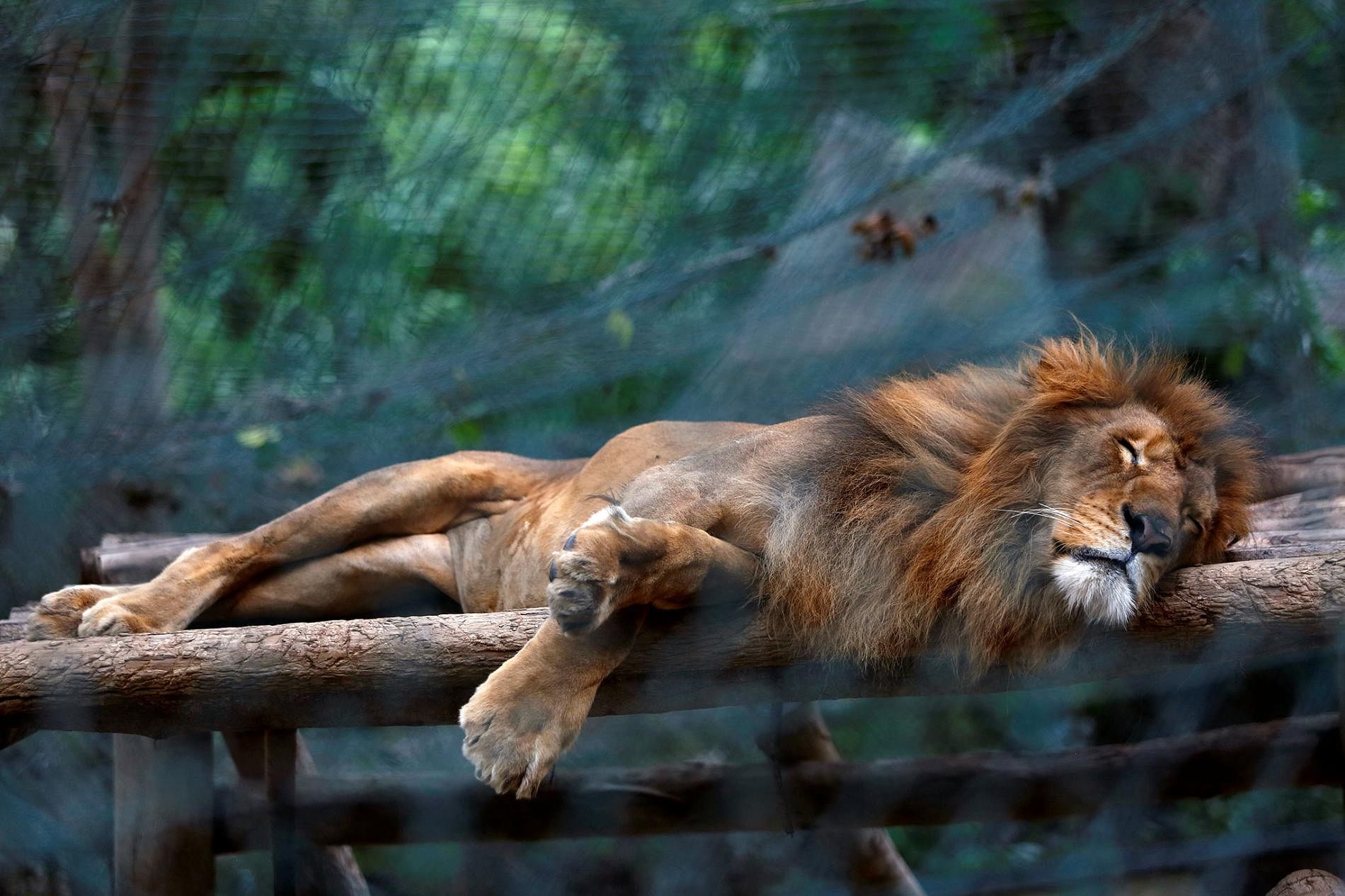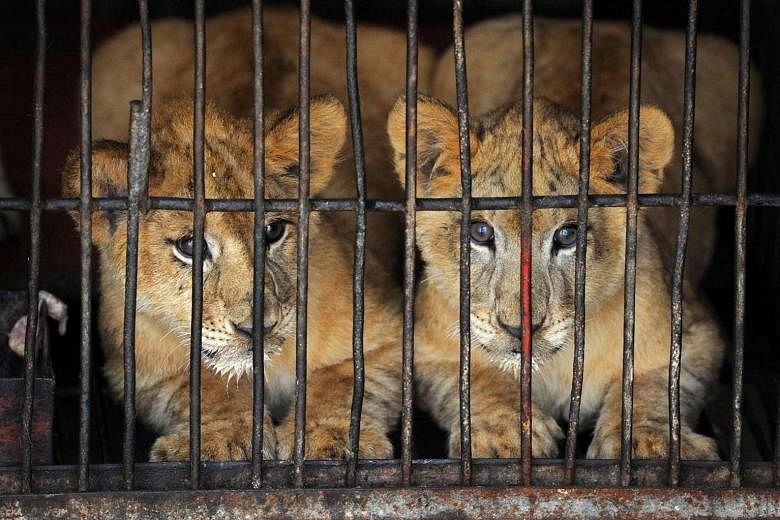Opinions on the continued existence of zoos differ widely. Some are adamant that animals are best left to roam free in the wild, while others argue that zoos play a part in the conservation of endangered species.
But there are unlikely to be many defenders for Bandung zoo in Java, Indonesia. In a series of videos taken by animal welfare group Scorpion dating back to June 2016, the zoo's skeletal sun bears are shown in various states of deprivation and misery.
One video shows a bear eating its own droppings while another shows the bears raising up on their hind legs to beg for food from visitors.
Here are five other instances of zoos where the treatment of animals has been heart-wrenching:
1. Surabaya Zoo, Java, Indonesia
Also on the island of Java, Surabaya Zoo has been called "a virtual hell on Earth for animals" by animal rights group People for the Ethical Treatment of Animals (Peta).
An 18-month-old male African lion was found hanging in its cage in 2014 after being strangled to death by a steel cable inside its cage.
Forty-three animals died between July and September 2013, including a giraffe that was found dead with about 18kg of plastic in its stomach - rubbish thrown into its cage by visitors.
Many of the 2,200 animals of the zoo continue to be squashed in cages and enclosures far too small for them.
2. Some zoos in China
Baby bears chained by their necks to a wall to train them to walk on their hind legs, big cats poked in the eye until they successfully perform a desired trick.
It would have been more accurate to describe Chinese zoos as circuses, until a directive was issued in 2011 by the China State Forestry Bureau to put a stop to circus acts in state-owned zoos. But privately owned safari parks or marine parks are a different matter altogether, according to a 2015 report by PETA.
China Daily reported in November 2016 on a viral video showing a tiger cub in the Shanghai Wild Animal Park being passed around among visitors by a zoo employee who slaps the animal's face to get it to open its eyes.
3. Caricuao Zoo, Caracas, Venezuela

With the nation suffering from chronic food shortages, Venezuela has problems feeding the animals in one of the country's main zoos.
Reuters reported in July 2016 that some 50 animals had starved to death over six months, including rabbits, porcupines and tapirs, some of which went without food for two weeks.
Zookeepers were also forced to put carnivorous lions and tigers on diets of mango and pumpkin.
"The story of the animals at Caricuao is a metaphor for Venezuelan suffering," said Ms Marlene Sifontes, a union leader for employees of state parks agency Inparques, which oversees zoos.
4. San Antonio Zoo, Texas, the United States
The San Antonio Zoo has appeared regularly on "Worst Zoos in the World" lists, especially for the treatment of its elephants, or rather, elephant.
In 2013, Lucky the Asian elephant became the last elephant at San Antonio Zoo after her companion Queenie died.
She was kept in what amounted to solitary confinement for more than two years - elephants are highly social creatures which live in herds consisting of up to 100.
This ordeal ended in 2016 with the introduction of two former circus elephants into her habitat, although animal rights activists remain concerned about three elephants crowded into a single compound.
5. Taiz Zoological Gardens, Yemen
The ongoing civil war in Yemen led the authorities to abandon the more than 240 animals in Taiz Zoo in early 2016, including 28 Arabian leopards which are critically endangered in the wild.
Eleven lions and six Arabian leopards starved to death before the intervention of rescue organisation SOS Zoo and Bear Rescue in February 2016.
Running out of funds, SOS made the decision to stop feeding the animals on Nov 30 in a gesture directed at the Yemeni government, which has persistently refused to issue the transfer permits that could give the animals a chance of being evacuated from a war zone.
US non-profit organisation A Lion's Heart has taken over the feeding of Taiz Zoo's animals as zoo staff continue to risk their lives daily amid the bombs to take care of the animals.


